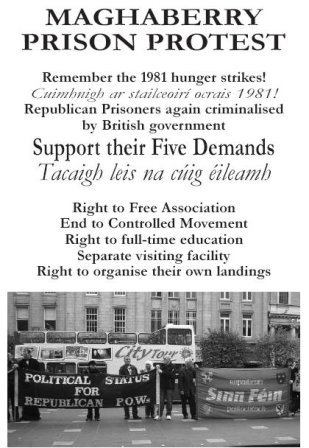Steve McQueen's Maze prison film Hunger shocks Cannes
Steve McQueen said he wanted to capture what it was like to hear, see, smell and touch the blocks where IRA prisoners were incarcertated in 1981
The controversial history of Northern Ireland's troubles was brought to vivid light in Cannes today with the screening of Hunger, directed by Turner Prize winner Steve McQueen.
Dramatising life inside the notorious Maze prison and the highly emotive events surrounding the 1981 IRA hunger strike, the film opened the Un Certain Regard section of the festival, which encourages innovative works and young talent.
The film stars Irish actor Michael Fassbender, 31, who starved himself for two months to play the IRA hunger-striker Bobby Sands
McQueen said he wanted to capture what it was like to hear, see, smell and touch the blocks where IRA prisoners were incarcertated in 1981 and convey something which could not be found in books or archives.
The London-born director said: "When I was a child growing up in 1981, aged about 11 or 12, there were three things that influenced me: the Brixton riots, Tottenham winning the FA Cup - which was fantastic - and Bobby Sands.
"His image appeared on the TV screen virtually every night with a number underneath it and it stayed with me. That passion and that level of confrontation to die on hunger strike.
"This memory and this opportunity drew me to find out more about him and I thought it could be a powerful film."
McQueen, who had never written a script before, described the research process of speaking with ex-prisoners, prison officers and priests who had visited the Maze as "probably the heaviest experience of my life emotionally".
He said he initially contemplated having no dialogue at all.
"But then I started to think about there being, after a period of no dialogue, an avalanche of dialogue."
The film is almost without dialogue for it's first hour, before an unbroken 22 minute take of Sands discussing his proposed hunger strike with his priest.
McQueen said of filming in Northern Ireland: "What became apparent was how so many people had been touched by this story and it was quite remarkable how everyone knew where they were when Bobby Sands died during the hunger strike, everyone had some kind of relationship to the events of that time."














